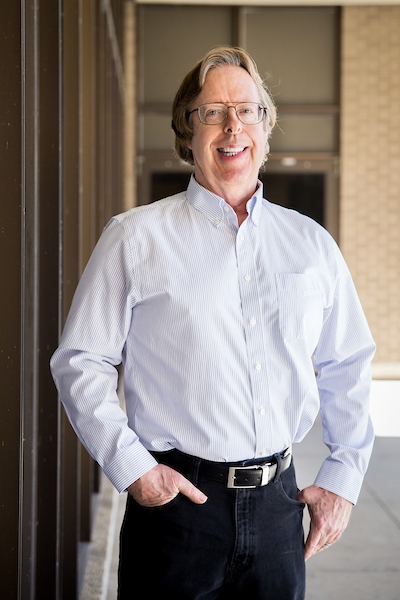UW-Madison’s Robert Enright spent five weeks earlier this year overseas delivering presentations and workshops related to his groundbreaking forgiveness work. The person Time magazine once called “the forgiveness trailblazer” engaged with audiences that included correctional facility innovators, cancer specialists, educational leaders, and more.
Enright, a professor with the Department of Educational Psychology and the founder of the International Forgiveness Institute, has been pioneering this work and researching how it affects well-being for more than three decades.

Enright explains that forgiveness is a choice for people who have been deeply hurt by another. He constructed a framework for teaching people how to forgive, developing this work into a 20-step program that he regards as essential for achieving a forgiving life.
The forgiveness program is divided into four phases: uncovering your anger; deciding to forgive; working on forgiveness; and discovery and release from emotional prison.
The idea, Enright explains, is giving people the option of choosing to forgive rather than holding onto anger and resentment, which can be debilitating.
“By liberating yourself from the pain and sorrow, you can reclaim your life and find the peace that your anger had stolen,” says Enright.
Enright’s formal presentation schedule on this most recent tour included:
Jan. 9 — Forgiveness Therapy for the Imprisoned: From Practice to Research Outcomes. This took place during the Restorative Justice, Forgiveness, and Prisoners Conference at Bar Ilan University in Ramt Gan, Israel.
“For many prisoners, the abuse an inmate typically experienced as a young man turned to a poisonous anger, which was destroying him and his life,” says Enright. “Counselors are seeing forgiveness therapy is one of the few approaches to corrections that actually works.”
Jan. 16 — Forgiveness Therapy for Patients with Multiple Myeloma and other Blood Cancers. This presentation was during the Sympozium Intergrativna Onkologia at the Slovak Academy of Sciences in Bratislava, Slovakia.
Enright notes how research is showing that suppressed anger can be a precursor to the development of cancer and its progression after diagnosis. Forgiveness therapy is now being included in regimens of some cancer treatment centers.
Feb. 1 — Forgiveness Education for Our Students. This was part of the 12-day forgiveness-focused extravaganza in Belfast, Northern Ireland, called the 4Corners Festival. Enright first tested his forgiveness education curriculum methodology in Belfast more than 17 years ago. Enright’s school-based forgiveness programs are also operating in the U.S. and more than 30 other countries around the world, and have been repeatedly tested and scientifically supported.
“We are all treated unjustly,” says Enright, who has been nominated for the Nobel Peace Prize for his forgiveness work in each of the past two years. “We need to combat the negative effects of unjust treatment. Forgiveness is the cure for that and it’s little understood. It’s time for society and the field of education and the mental health fields and medicine to take a much closer look at this.”
• In July, Enright received the international Expanded Reason Award in recognition of his pioneering work on the power of forgiveness. This international award from the Universidad Francisco de Vitoria in Madrid, Spain, and the Vatican Foundation Joseph Ratzinger/Benedict XVI, recognizes extraordinary teachers and researchers. The recognition utilizes an international panel of seven judges who examine books and journal articles to ascertain who across the globe is best conducting innovative and important scholarship that cuts across the social sciences and philosophy or theology.